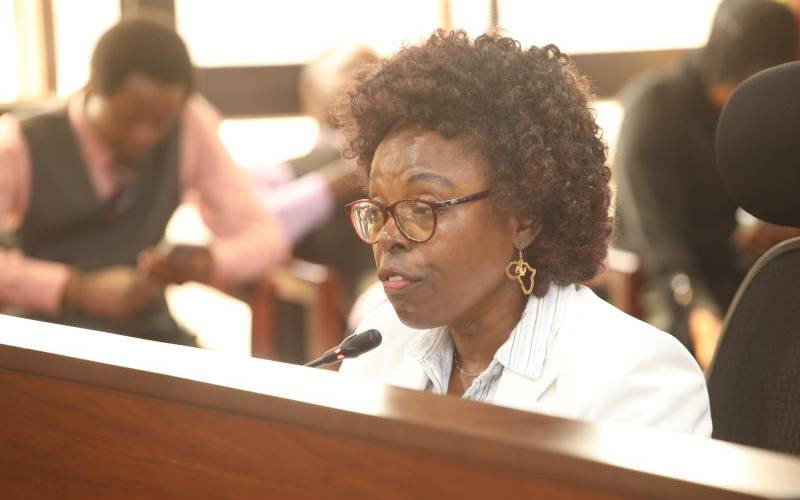
Something extraordinary has just happened in Kenya. A list detailing payments of claims to hospitals has suddenly gone missing from the Social Health Authority (SHA) website.
This is not a random glitch, not a routine website update. It is an erasure. A desperate attempt to cover tracks after the youth, our Gen Z, unearthed the scandal of ghost hospitals and suspicious payments.
And here lies the miracle and the warning: this expose did not come from the mainstream media. It did not come from the opposition benches in Parliament. It did not even come from the internal audit systems that taxpayers fund. It came from young Kenyans. A generation tired of lies, theft and excuses. A generation determined to take their country back.
The disappearance of the SHA list is not just administrative carelessness. It is an admission of guilt. When data disappears, it is because someone has something to hide. The authorities know Kenyans are now alert, that eyes are watching, and that silence is no longer guaranteed. The fact that the first instinct of the system is to hide instead of explain tells us everything we need to know.
But here is the irony. Deleting a list will not delete the truth. Screenshots live forever. Shared files are already archived. Once Gen Z puts information in the public square, no bureaucrat can claw it back. In this digital age, cover-ups only confirm the crime. Gen Zs have become the watchdogs we never expected. Traditionally, the work of exposing corruption has fallen to the media, to the opposition, or to government watchdogs like the Auditor General. But in today’s Kenya, the mainstream media, save one or two, has grown timid, weighed down by political capture and commercial interests. The opposition has become transactional, trading outrage for handshakes and survival. Internal watchdogs, meanwhile, are often toothless.
Enter Gen Z. Armed not with offices or titles but with smartphones, laptops and an unshakable sense of justice, they are doing the work institutions have abandoned. They are scrutinising websites, cross-checking numbers, and exposing rot in real time. They are not waiting for tomorrow’s headlines. They are making today’s headlines.
And this is the revolution nobody saw coming. The young are no longer just marching in the streets or venting on TikTok. They are auditing the state. They are piercing the veil of bureaucracy with data, with analysis, with facts. And they are sharing it instantly with millions.
The system is shaken. This is why the sudden deletion of the SHA list is so telling. It shows a system caught off guard. For years, officials have thrived on the assumption that Kenyans either do not care, do not notice, or can be pacified with rhetoric. That assumption is collapsing. The youth are not only noticing. They are documenting, archiving, and broadcasting. The tools of digital transparency are in their hands, not in government boardrooms.
Kenya’s Gen Z is different from past generations in one critical way: they feel they have nothing to lose. The economy has locked them out of jobs. The education system has trapped them in debt. The political class treats them as expendable. For many, even the dream of middle-class stability is fading. What this creates is a radical freedom. This makes Gen Z dangerous to a corrupt system. They are not waiting for patronage. They are not begging for tenders. They are not invested in political survival. They want accountability because accountability is survival for them, for the country, for their future.
This is the beginning of the end of impunity. If Kenya’s history of corruption is a book, the SHA saga may be a new chapter. Not because the theft is new, far from it. Ghost institutions have been eating for decades. But because the exposure is new. For the first time, it is not a whistleblower in government, not an NGO report, not a foreign donor audit. It is the children of the nation themselves, pointing and saying: we see you. This shift could mark the beginning of the end of impunity. Because what corrupt officials fear most is not prosecution. They have learned to game the courts. What they fear is public exposure in real time. They fear a citizenry that no longer shrugs and moves on. And Gen Z is making that fear real.







